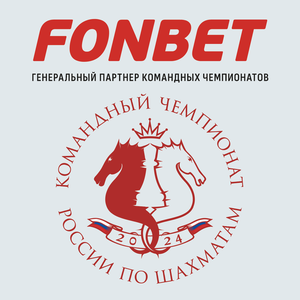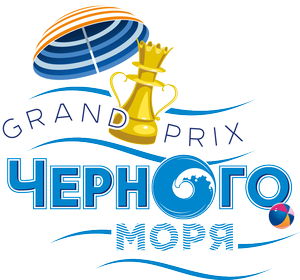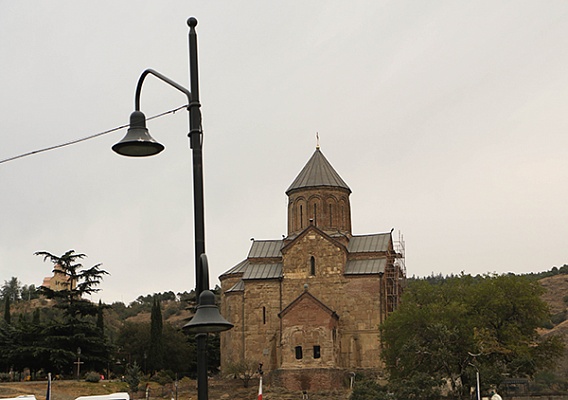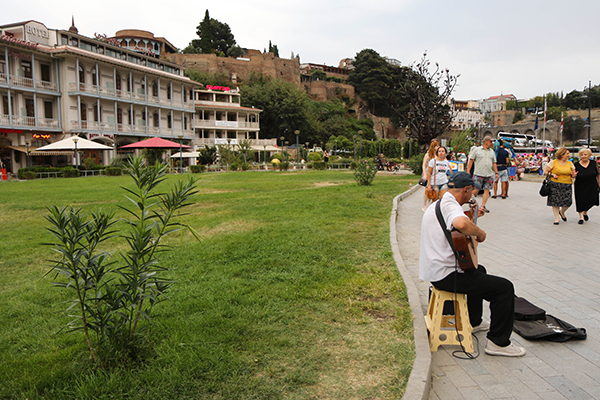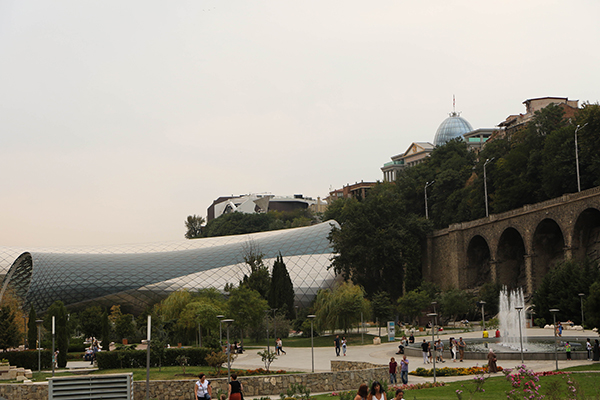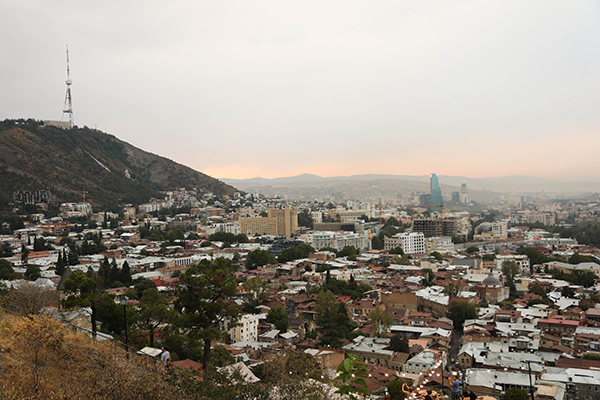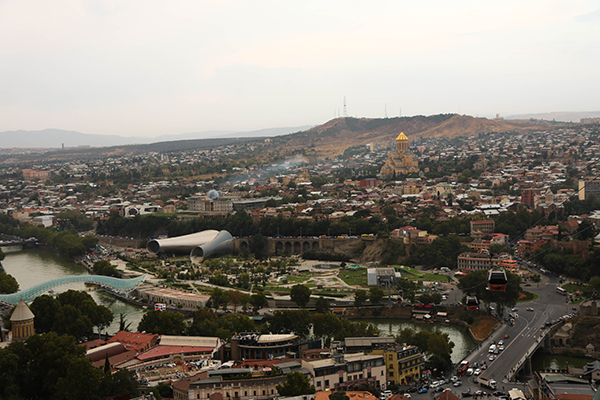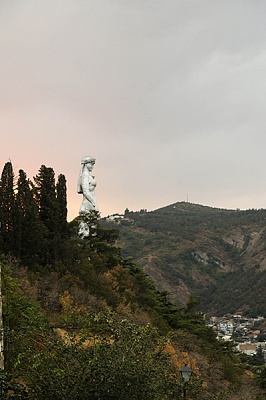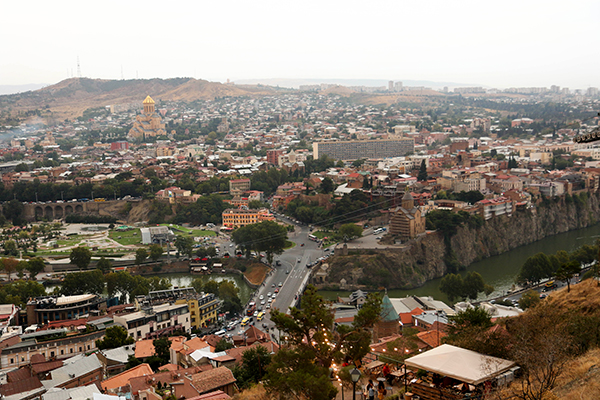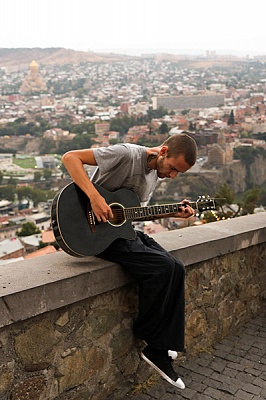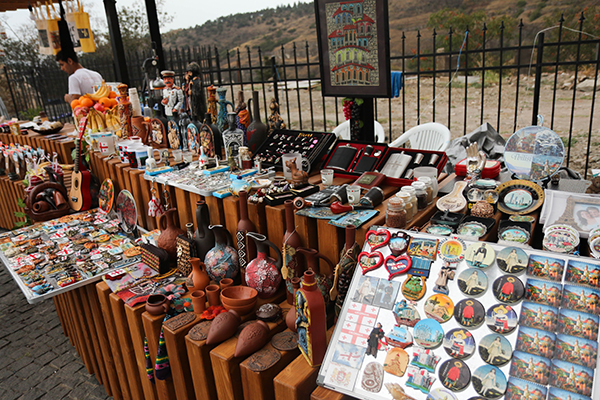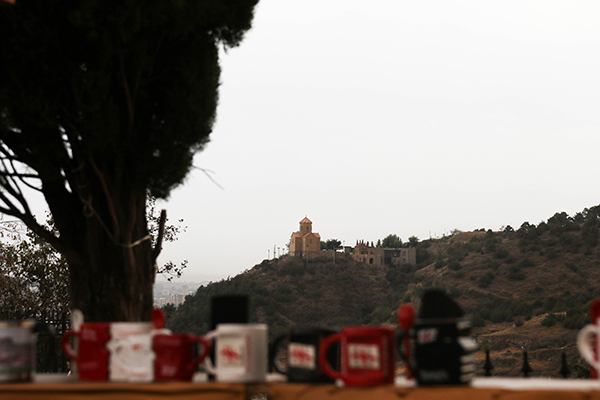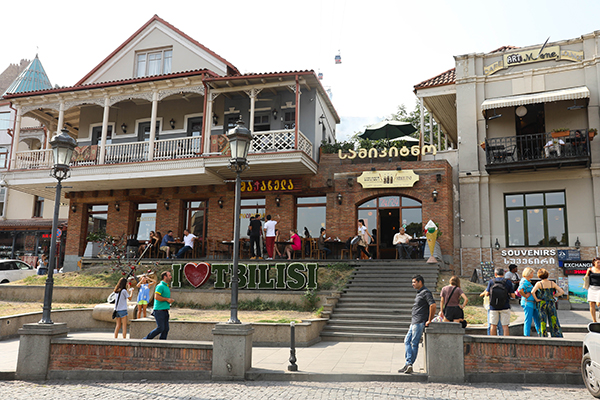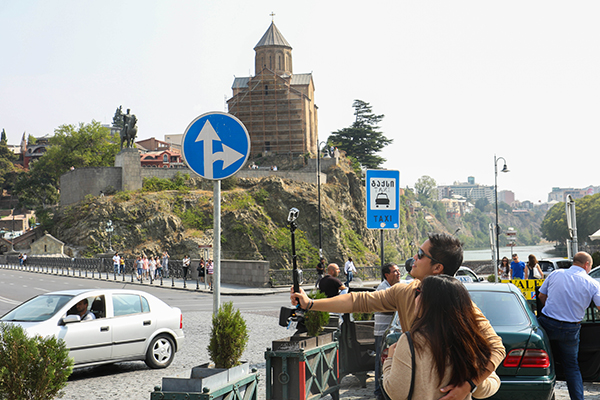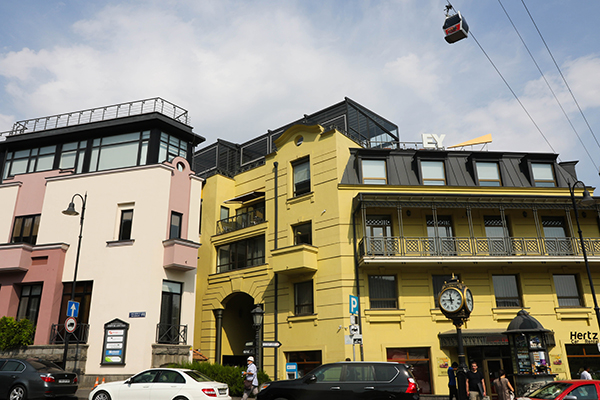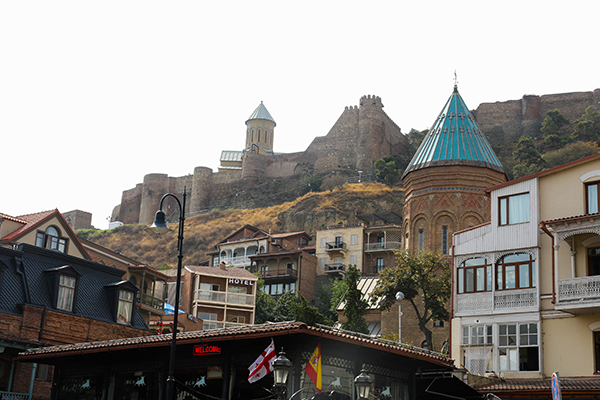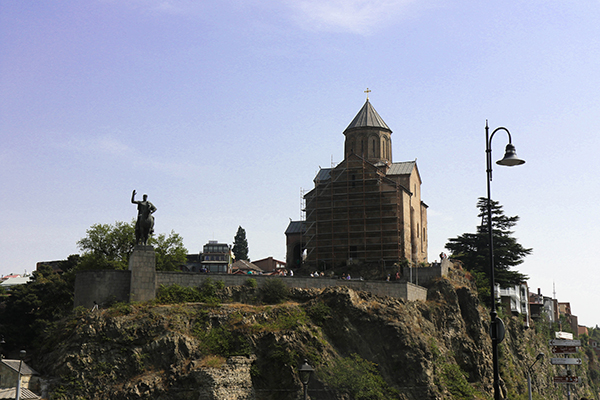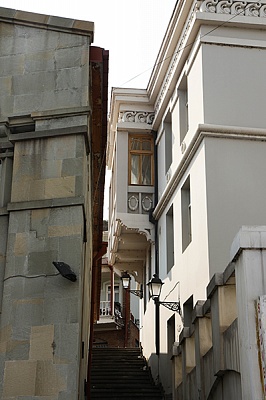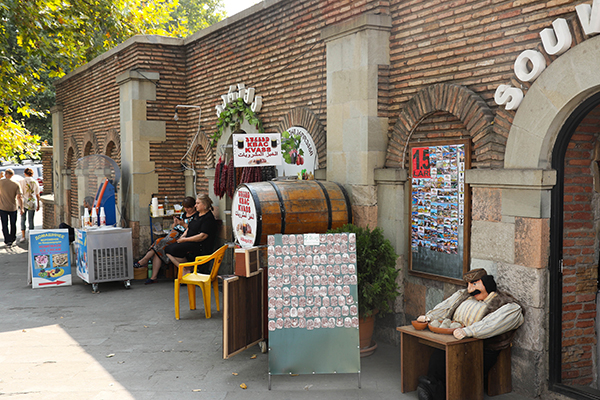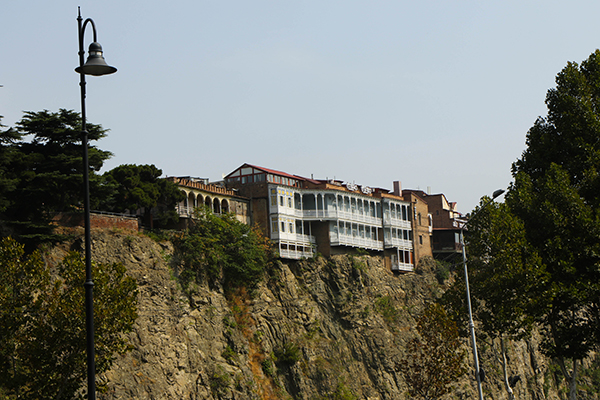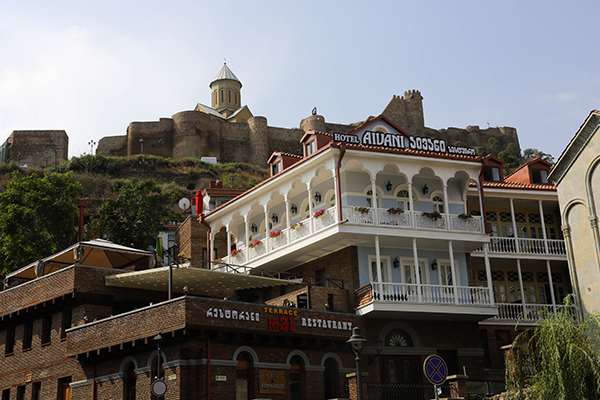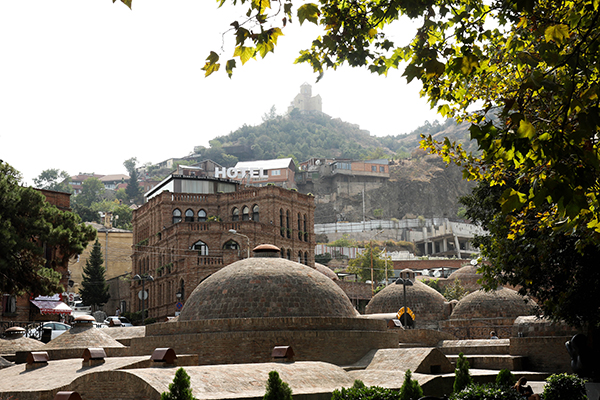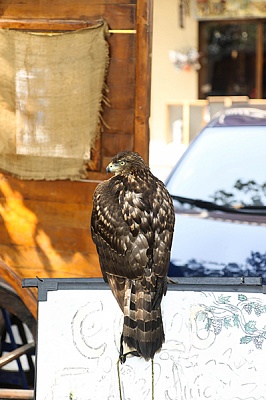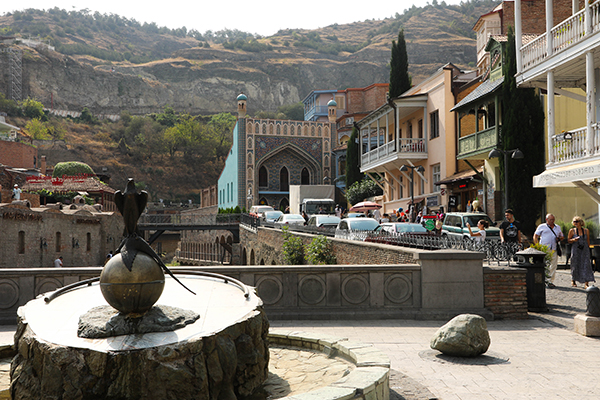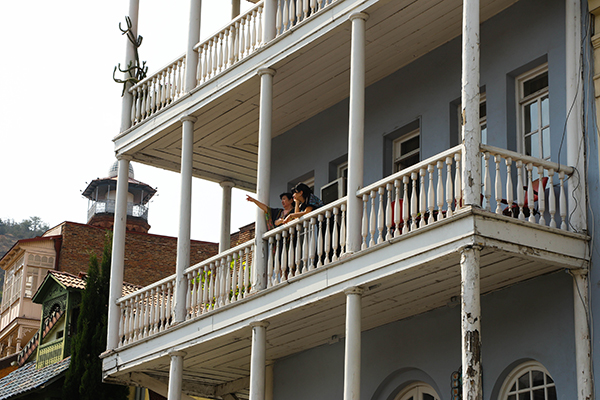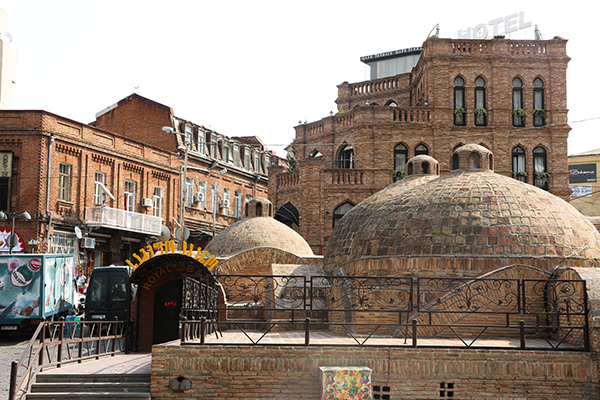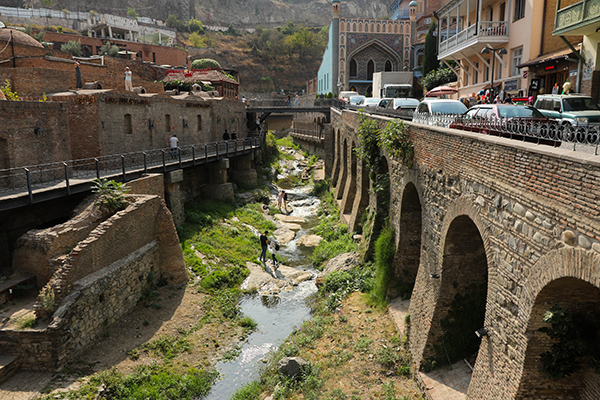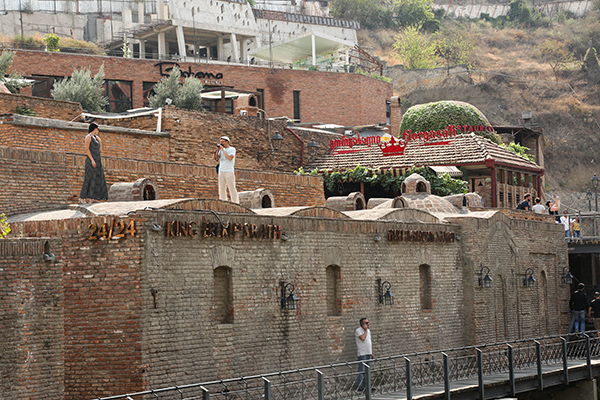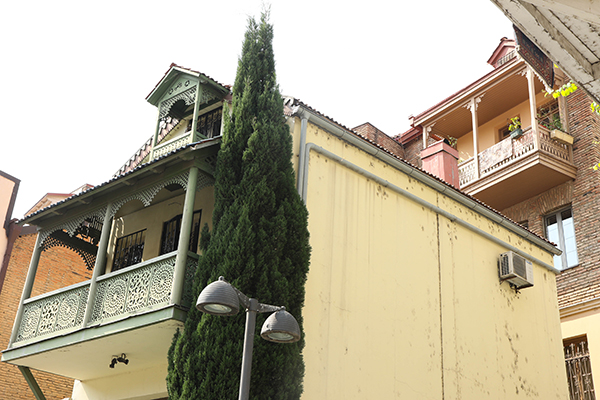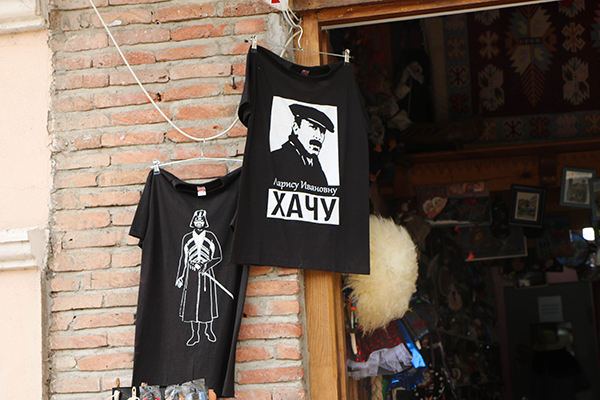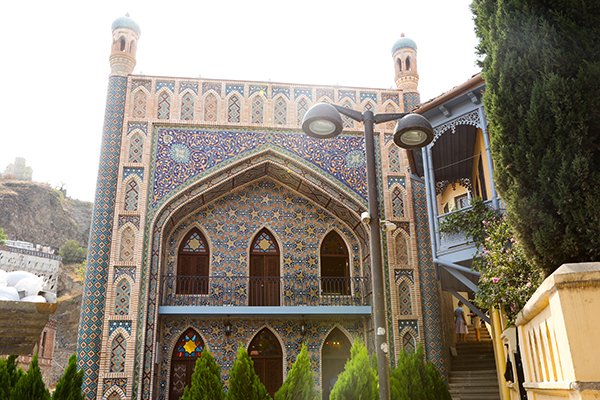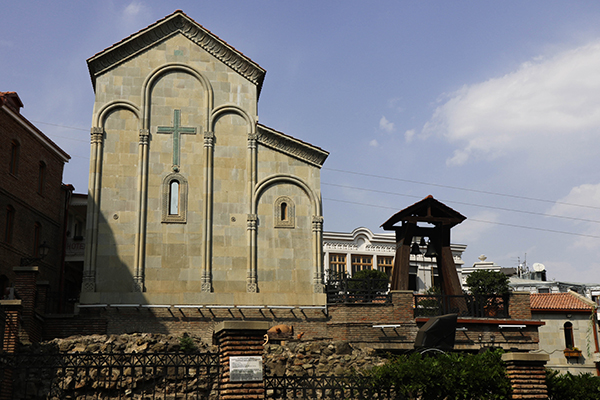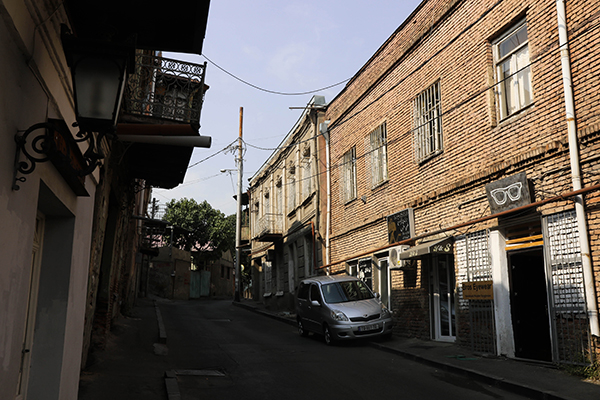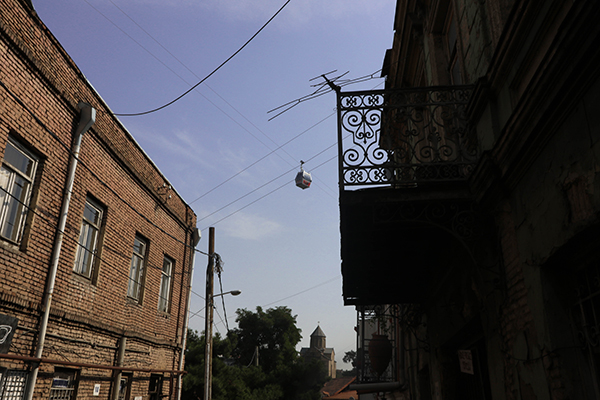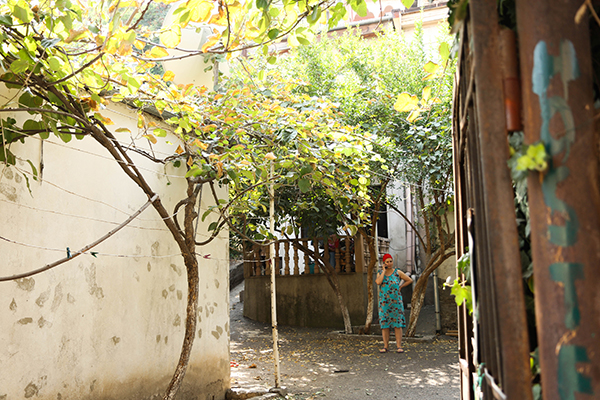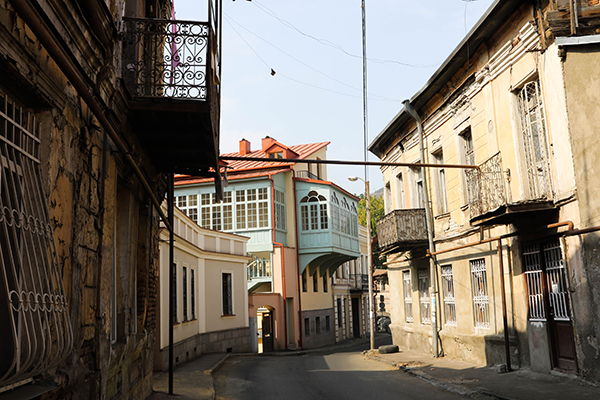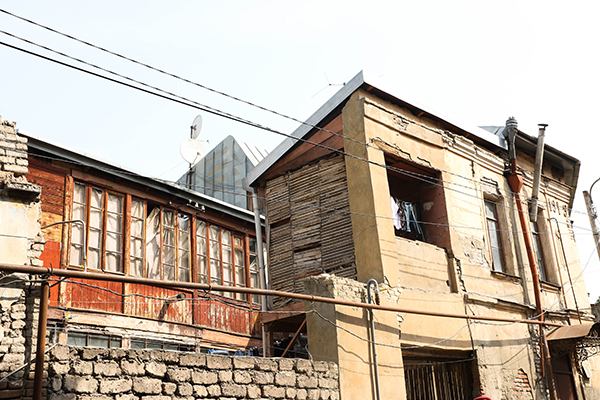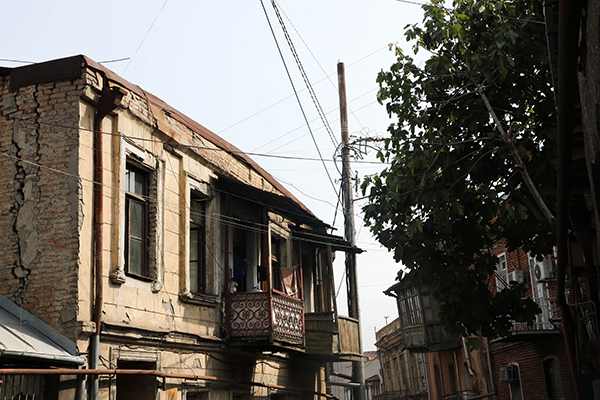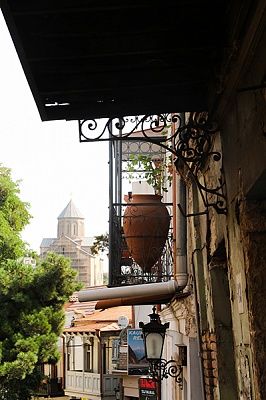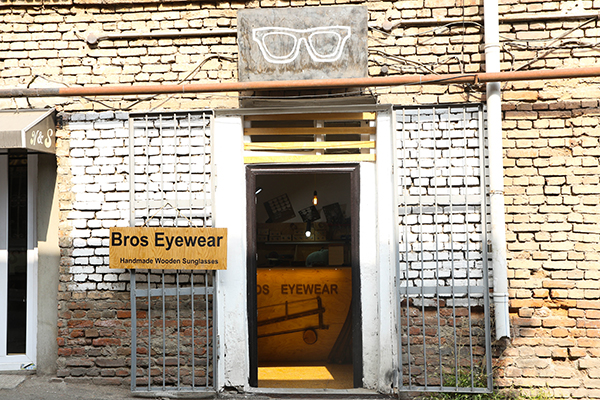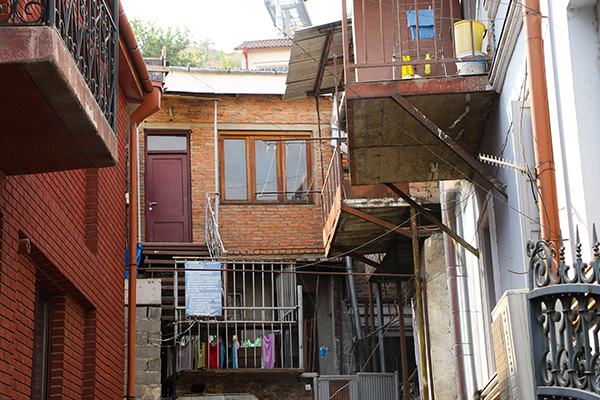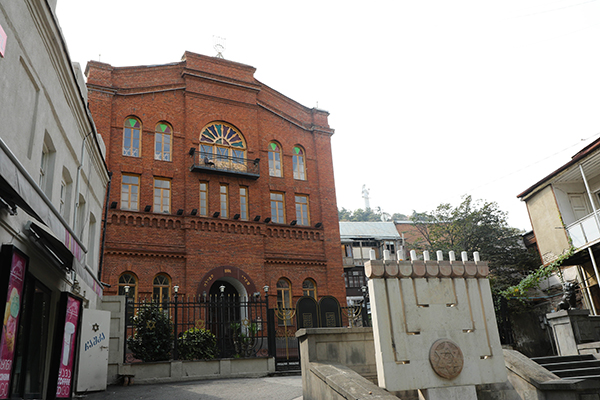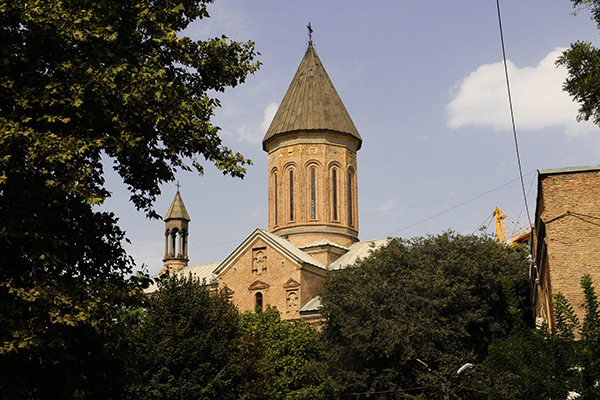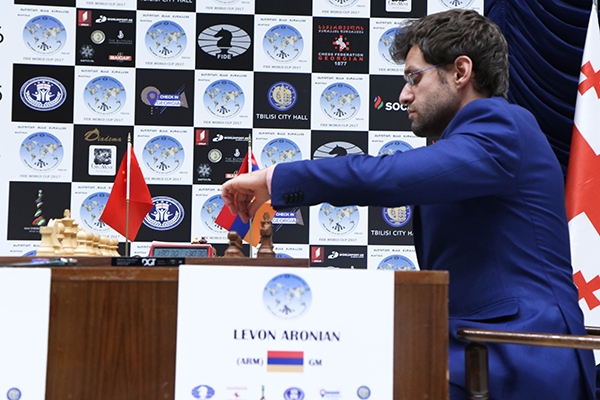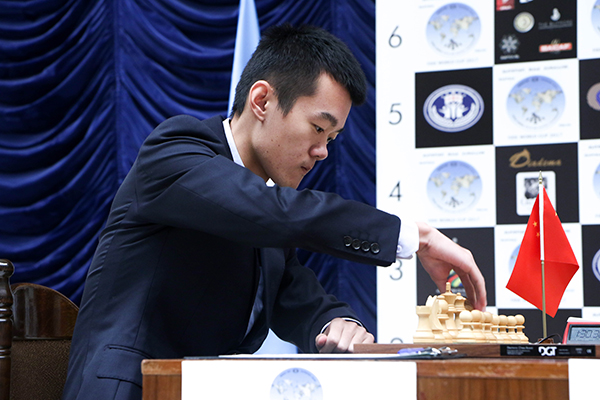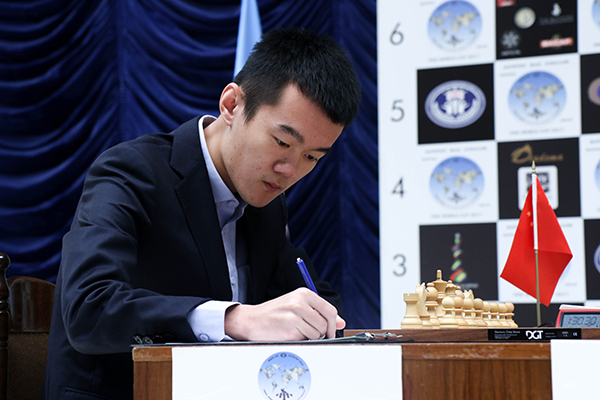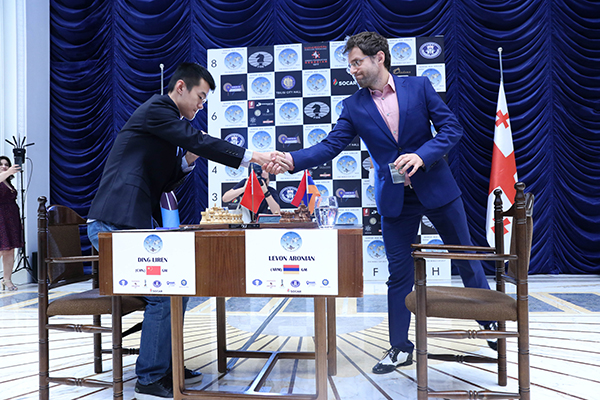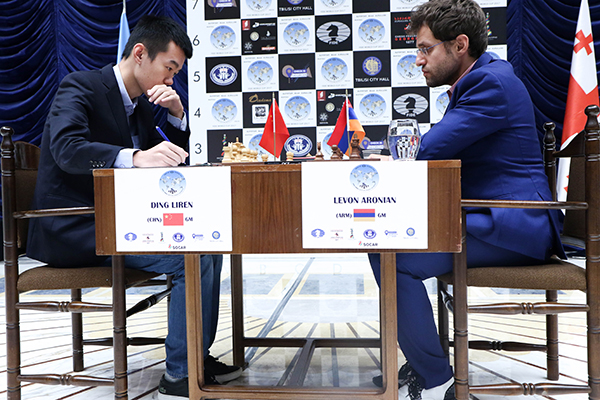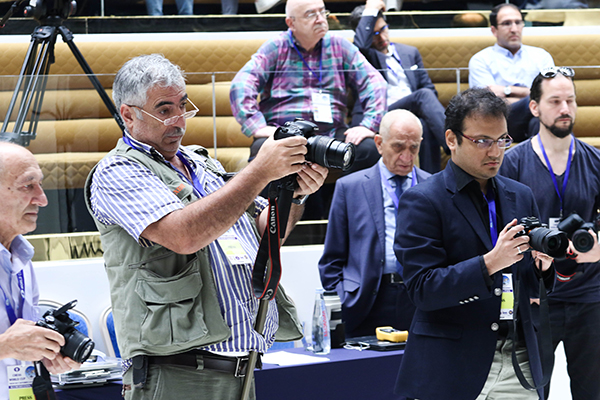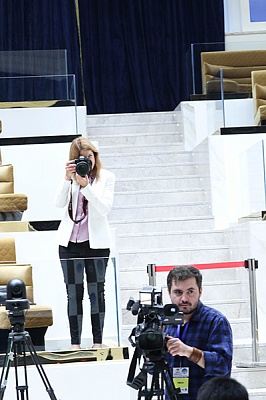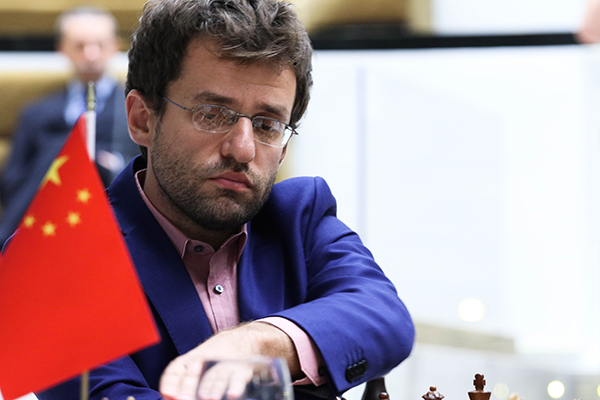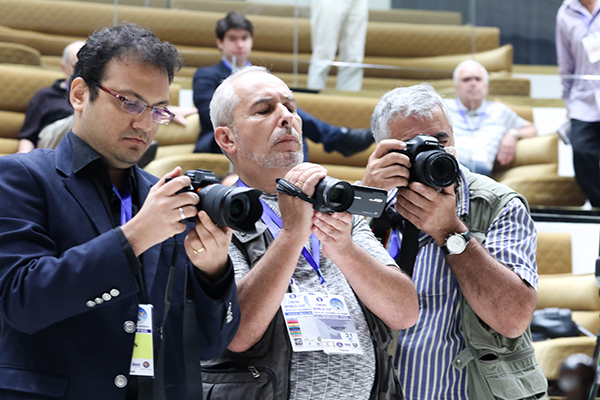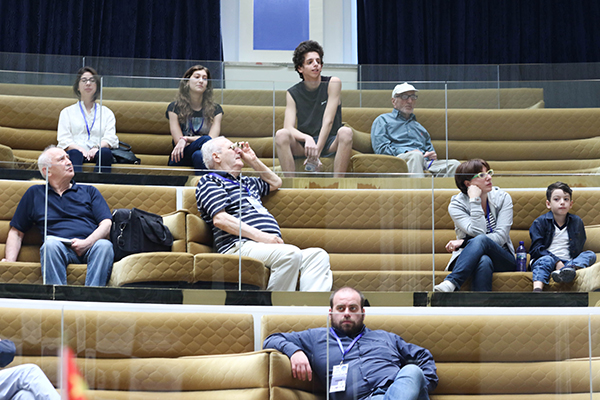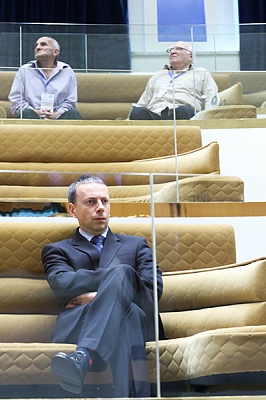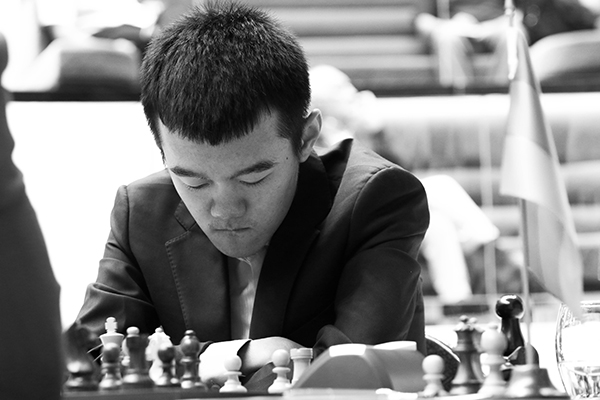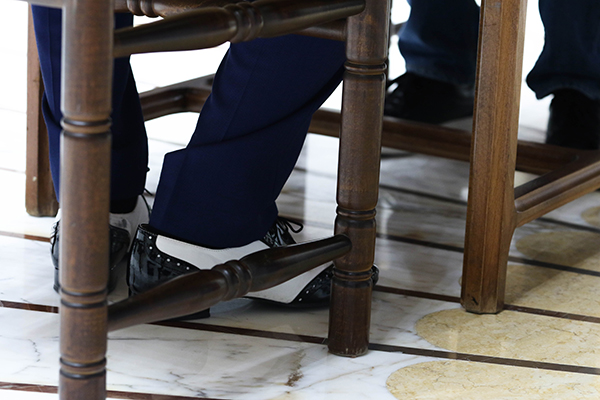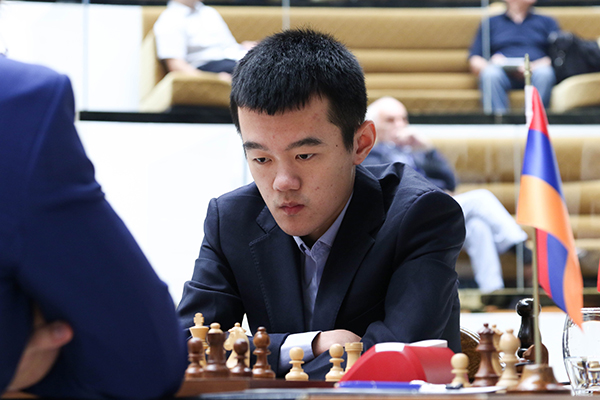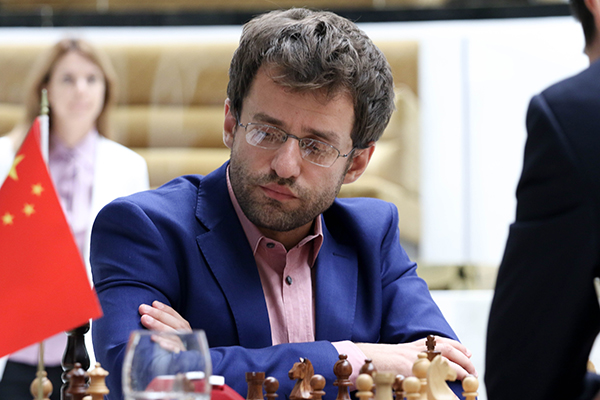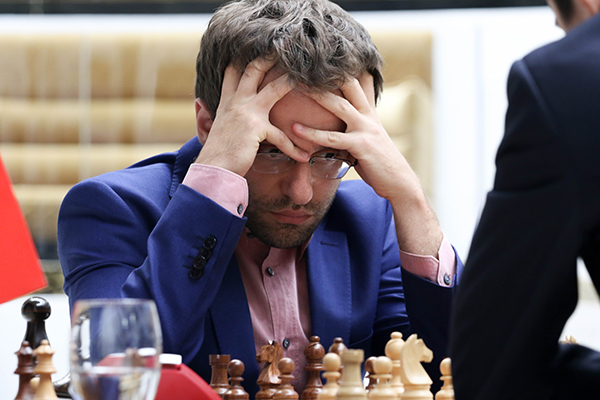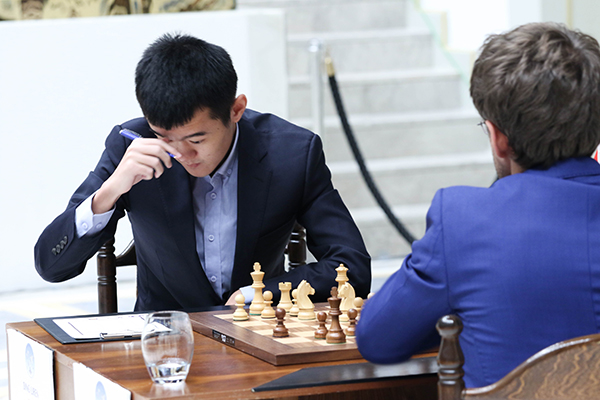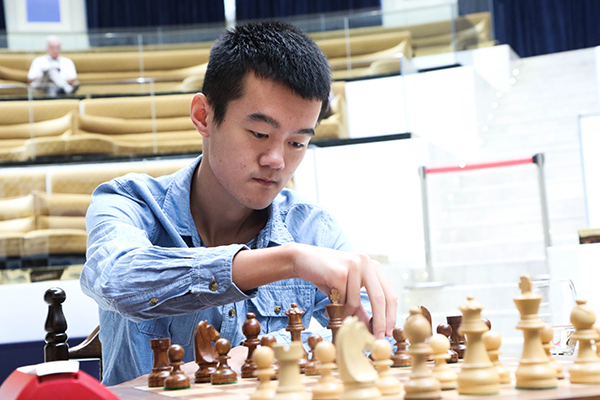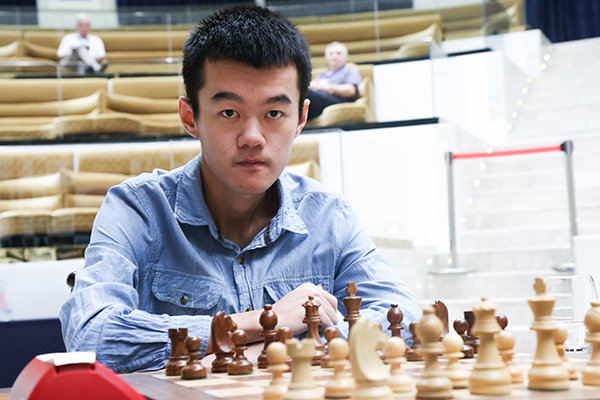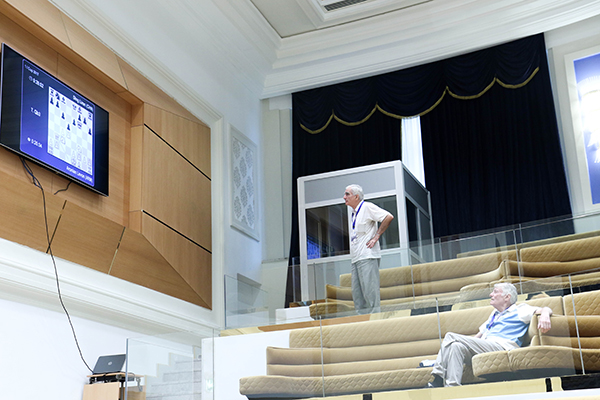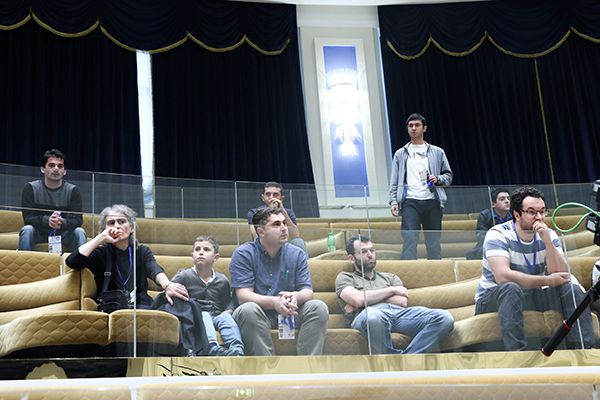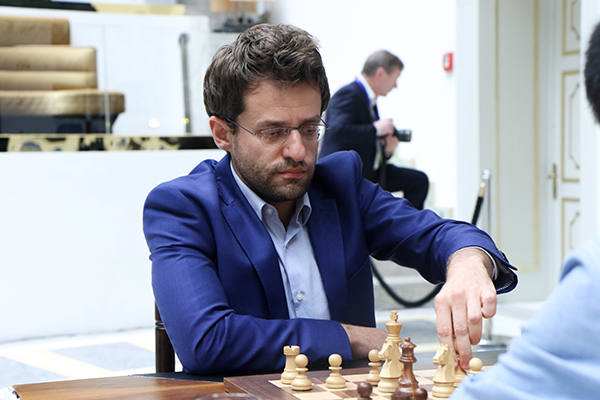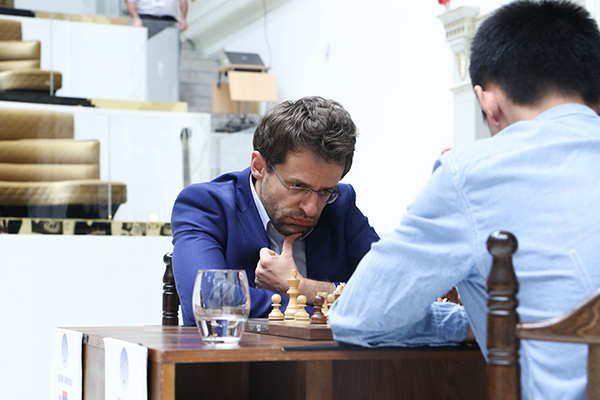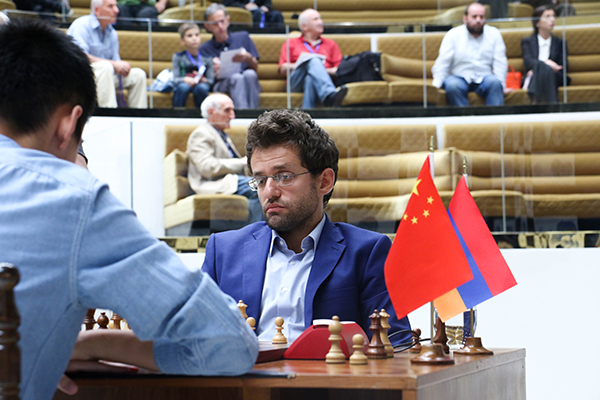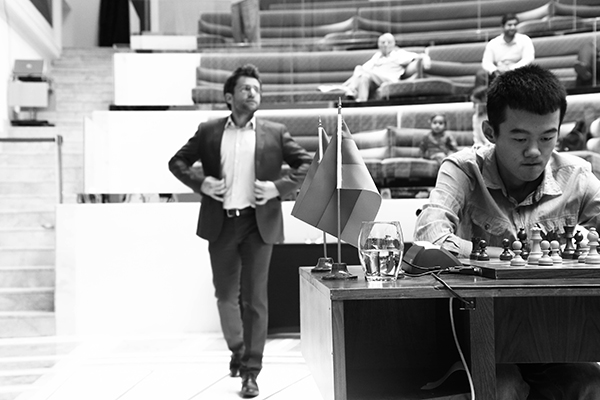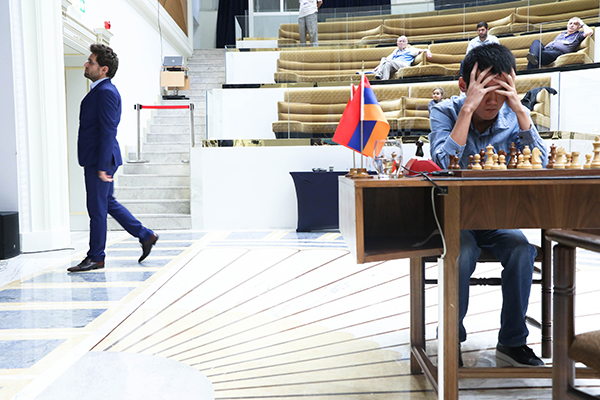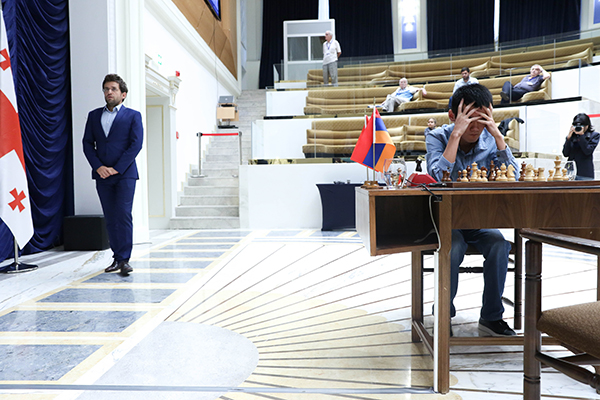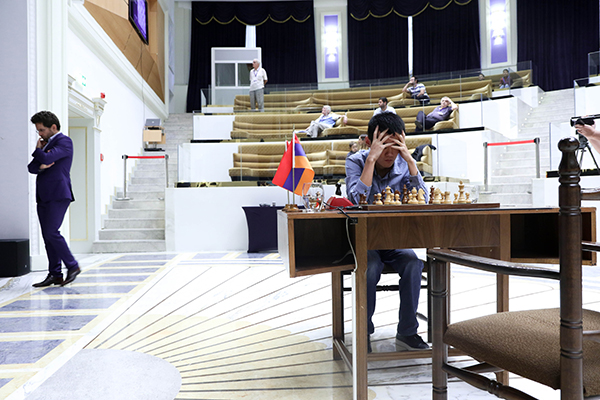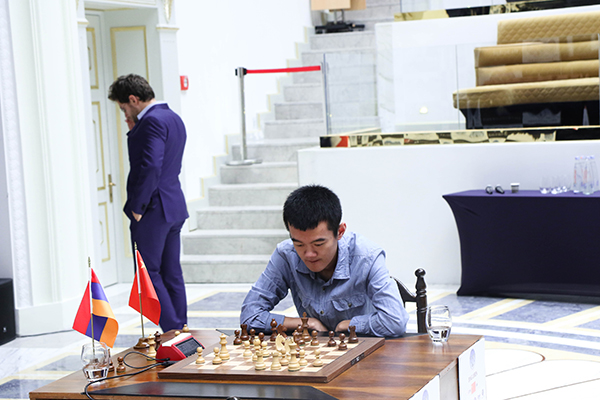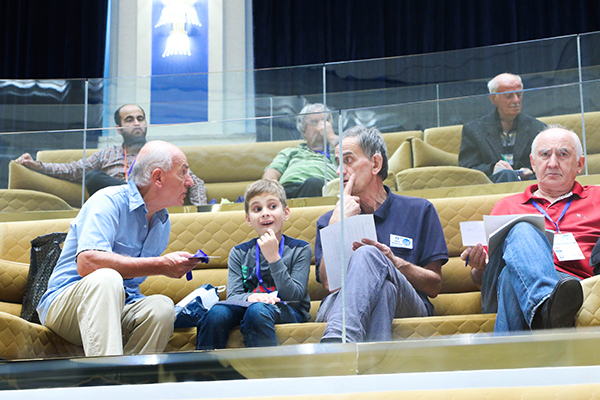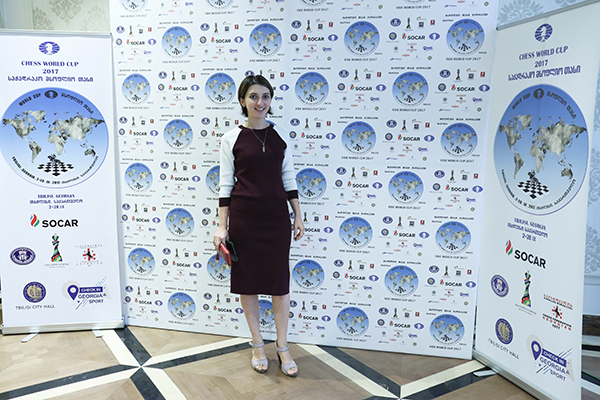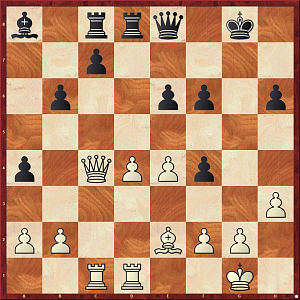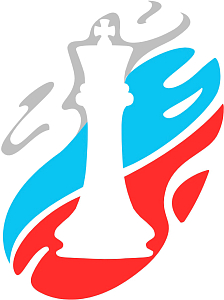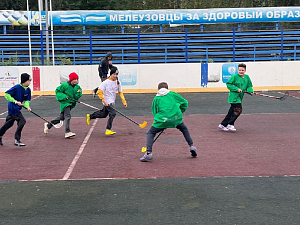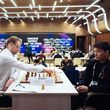Closing the Circle
Final days of the World Cup reported by Eteri Kublashvili
Before the start of game three Levon Aronian’s face said little about his feelings over the previous game’s outcome. The Chinese player’s behavior was no different than usual. All in all, game three was very brief and other than violent.
Aronian’s simple moves as White in the English Opening got him into a pleasant and promising position, and a moment came for him to choose the best move - a situation not infrequent to players of all levels. White’s actions lead to a position with queens, rooks and opposite-colored bishops. The trade of rooks simplified the position even further, and a draw was agreed on move 31.
The video stream captured Levon Aronian explaining something to his opponent during the game. Then the arbiters approached the table. The thing is, the Chinese, known for practically not offering draws on his own, decided to do so within his opponent's thinking time. Here is Levon politely explaining the rules of good chess tone to his counterpart.
Game four was a sort of demonstration of a curious trend in the game of both players. Thus, Ding Liren would give a lot of thinking to his opening, going for unfavorable complications and getting into a difficult position down a pawn. However, he would then start quickly producing strong moves to get out of trouble. This said, the Chinese player would again make things difficult for himself towards the end of the game, but it all ended well for him. As Levon Aronian was up against the issue of disappearing advantage once again, he “helped” his opponent into making pieces active to transpose into a drawn rook ending.
As in the previous World Cup edition, the onus of making things clear was shifted to the tie-break. As opposed to Peter Svidler and Sergei Karjakin showing a great deal of fighting spirit in all classical games in Baku, all four games here ended in draws. To make up for it, the tie-break did not last long.
On the final day the Chinese chess player looked as if somewhat depressed compared to his opponent. He was again in a deep think in the first rapid game, creating problems for himself by weakening the kingside. Levon Aronian did not need asking twice to come up with a beautiful shot.
Aronian – Ding Liren
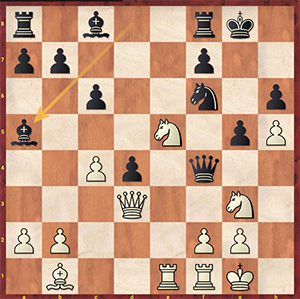
The white rook is en prise, but Levon has other plans to launch his own attack.
19. Ng6! Qd2 20. Ne7+ Kg7? (tougher is 21…Kh8) 21. Qb3! Qf4 22. Rd1 Bb6 23. Ngf5+ Bxf5 24. Nxf5+ Kh8
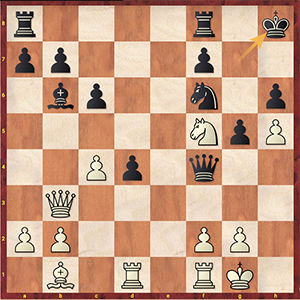
25. g3! Qg4 26. Nxh6 Qxh5 27. Kg2 d3 28. Qc3 Kg7 29. Nf5+ Kg6 30. Rh1, and Black resigns.
Before game two, the Chinese player somehow looked completely dispirited, while Levon was extremely tense and could not even sit still until the game started. This can be seen from the gallery pictures.
Ding Liren sidestepped main theory of the Ragozin Defense and achieved an edge, but something went wrong at the critical moment.
Ding Liren – Aronian
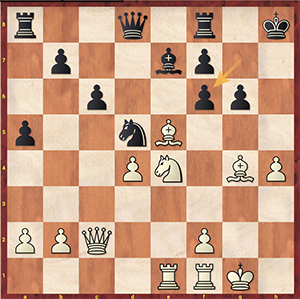
On the previous move Black came up with a risky piece sacrifice on f6, which raised White’s chances significantly. Maia Chiburdanidze, who was in the press center and who seems to calculate lines no worse than the engine, suggested 23. Qd2 in this position. A rough line is as follows: 23…Kh7 24. Bg3 f5 25. Ng5+ Kg8 (25... Bxg5 26. hxg5 fxg4 27. Kg2 Kg8 28. Rh1) 26. Bf3 Bb4 27. Qc1, upon which White is definitely better.
However, Ding Liren came up with a strange 23. Bh2?, giving Black a break to equalize. Soon after Aronian even took the initiative over and went on to win the game in a confident manner:
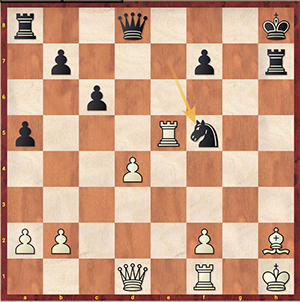
31. Rfe1? Qh4! 32. Re8+ Kg7 33. Rg1+ Kf6. White resigns.
The match ended 4:2 in favor of the Armenian grandmaster; let me remind you, however, that both finalists have qualified into the Candidates Tournament (Berlin, 2018).
In general, as Levon Aronian, the 2005 World Cup winner, has said in one of his interviews, the circle was destined to close after 12 years. And it did happen this way. After the tiebreak, the World Cup victor kindly agreed to answer my questions
- Levon, my congratulations on your success! Which matchup was the most difficult for you, and which one pleased you the most?
- Thank you. Matchups with both Maxims proved very challenging. Maxim Matlakov would come back as the match progressed, demonstrating a very good level of play in general, whereas Maxime Vachier-Lagrave was the first to outplay me.
- The final gave you many opportunities to win earlier, but it would somehow shape differently for you time and again. What was your mindset realizing that you had missed yet another opportunity?
- When you feel the initiative to be on your side, you need to press further. Having to defend is not easy from the physiological point of view, as though you are under besiege. However, if your opponent keeps persisting in his ways, a moment to score will present itself to you sooner or later.
- You used to have a negative score against Ding Liren, 0:2 in his favor, if I am not mistaken. Was it any influence at all?
- It was not much of an influence since I always try to return favors to my opponents (smiling). I should say, however, that in those lost encounters I was too eager to win. As for this event, I acted with more respect and concentration.
- How was the event organized from your point of view?
- Save for the outside noise episodes (during the final games – E.K.) I think everything was OK.
- With your wedding scheduled on September 30, the entire burden of organization has fallen on your bride’s shoulders, no doubt. Nevertheless, she would sometimes come here to support you...
- Indeed. She would actually come here to get enough sleep, because she could turn off her mobile and relax a little from all prewedding challenges. I am very grateful to her.
- How big this event is going to be?
- In terms of the Caucasus, normal. Around 350 people.
- If you don't mind my asking, have you invited any guests of honor?
- I have, but they are from Armenia mostly.
- In conclusion, please tell us about your assistants. There was a person with you here – can you disclose his name?
- There is no secret in it whatsoever – this is my friend and assistant Vartan Geghamiyan. He works for me in many different areas. Chesswise, I have collaborated with Ashot Nadanyan, my long-standing assistant. There is no unmentioning Arianne’s help either.
The closing ceremony took place in the same hall which hosted the final fames. The ceremony was attended by the Minister of Sport and Youth Affairs of Georgia Tariel Hechikashvili; the fifth world champion Nona Gaprindashvili; the ECU President Zurab Azmaiparashvili; President of the Georgian Chess Federation Giorgi Giorgadze; Vice-president of FIDE, President of the Turkish Chess Federation Gulkiz Tulay, and Chief Arbiter of the competition Tomasz Delega.
Both finalists also took the floor, thanking the organizers and giving credit to each other and their other opponents.
Levon Aronian was presented with a beautiful and hefty gold cup, and the end of the closing ceremony was a video clip about the Olympiad to be held in Batumi next year.
Finally, I suggest that our readers take a look at another set of pictures taken from the very center of Tbilisi. Here you will see the city’s central square Meydan, sulfur baths (it is the combination of words "warm spring" that the name "Tbilisi" originates from), as well as numerous views of the Georgian capital city.









